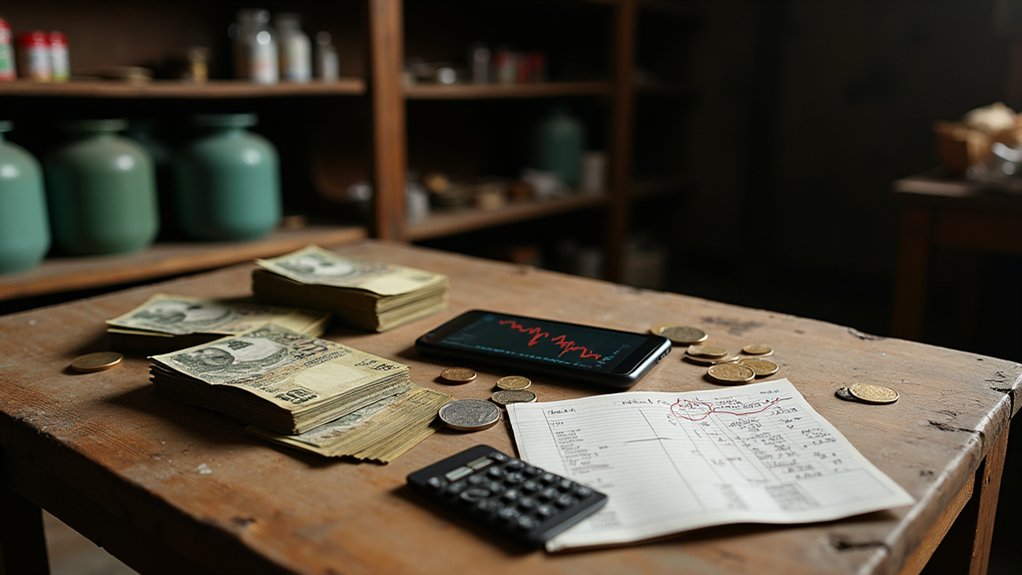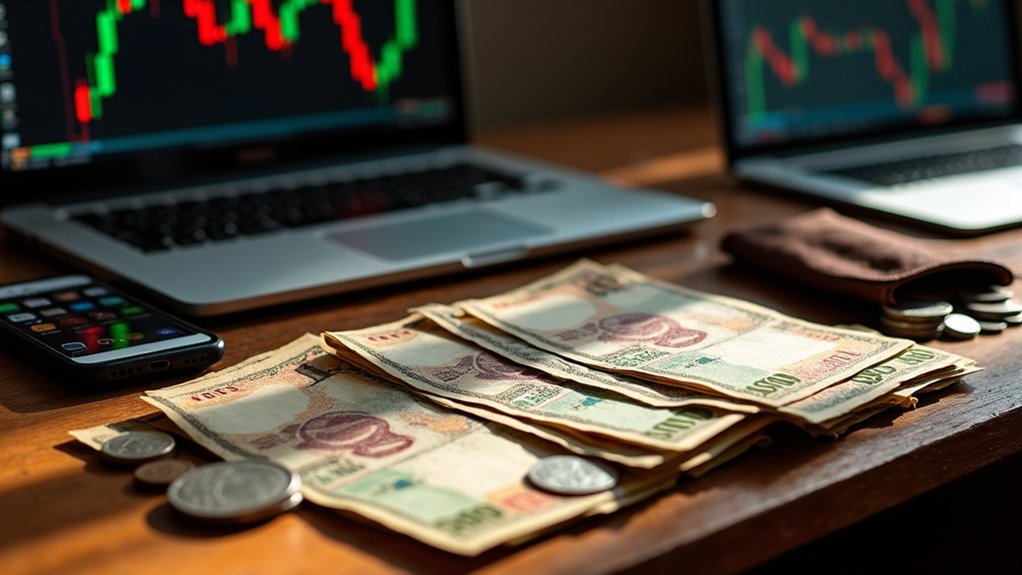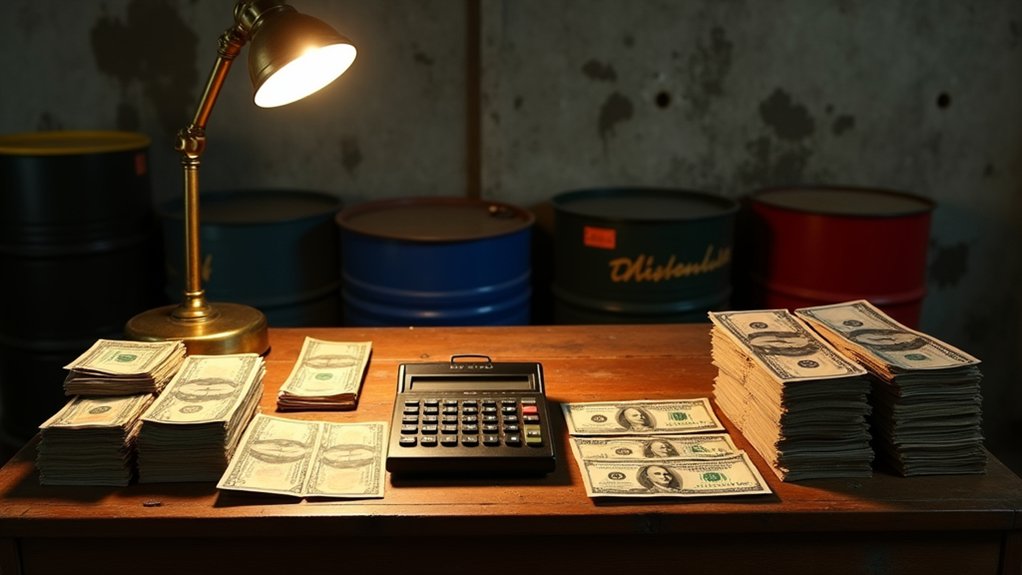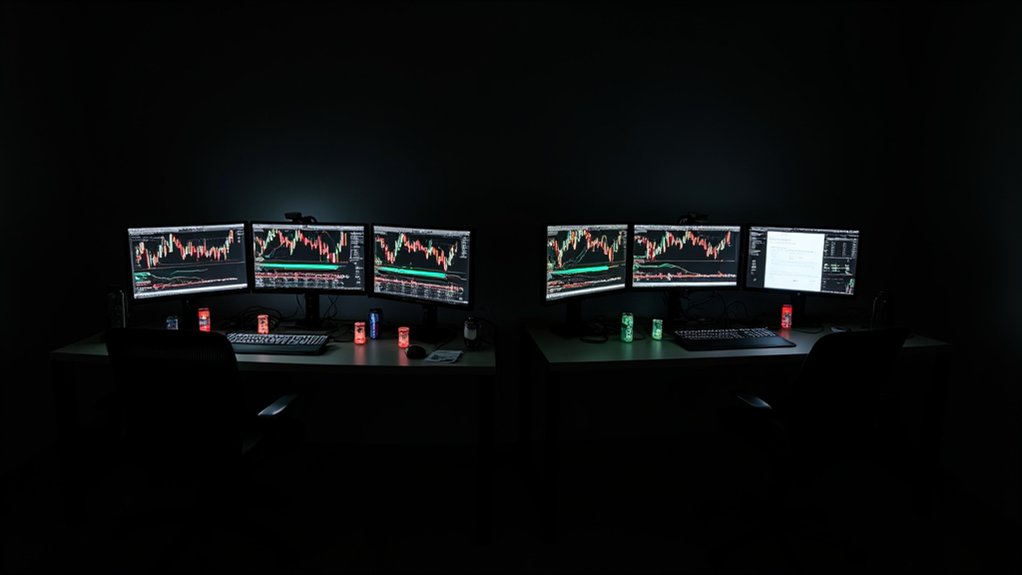Forex trading in Djibouti isn't illegal—it just isn't really regulated either. The Central Bank oversees monetary policy and the DJF's peg to the dollar at 178.08, but there's no securities regulator licensing brokers or watching retail trades. International platforms operate under home-country rules (or convenient offshore licenses), local brokers sometimes register with the BCD, and scammers flood Facebook and Telegram with fake testimonials and signal schemes. No capital controls, unclear tax rules, and a payment infrastructure that occasionally grinds to a halt round out the picture for anyone willing to dig deeper.
Quick Facts That Matter
- Djibouti has no formal forex licensing framework; international brokers operate unregistered, creating regulatory gaps that fraudsters exploit with fake platforms.
- The DJF pegs to USD at 178.08, providing exchange stability but limiting currency speculation opportunities for local traders.
- Scammers use social media—Facebook, TikTok, Telegram—to recruit victims with fake testimonials, signal services, and phishing portals harvesting credentials.
- Payment infrastructure lags and digital literacy remains low, causing operational friction, withdrawal delays, and frequent account takeover incidents.
- Warning signs include unverifiable licenses, pressure to deposit before demo practice, unrealistic returns, and unresponsive support during withdrawals.
Overview: Forex Trading in Djibouti
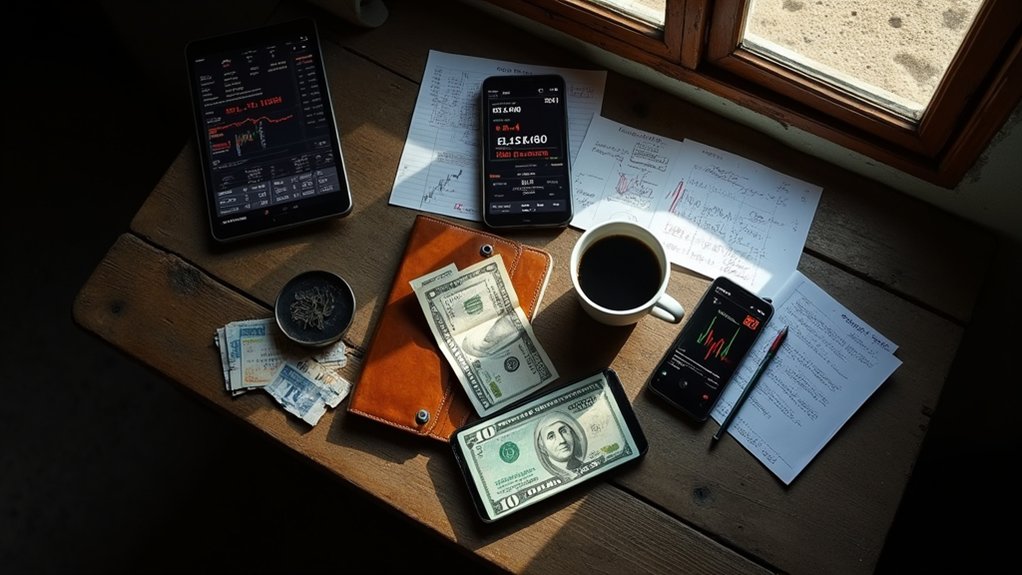
In a corner of the Horn of Africa where most people couldn't find on a map if their lives depended on it, Djibouti maintains something remarkably boring: a fixed exchange rate at DJF178.08 per USD.
The Central Bank props this up with 72.9% reserve coverage.
No restrictions on forex transactions.
Capital flows freely.
The banking sector expanded, regulators tightened frameworks, and the whole system dodged the 2008 crisis while others burned.
Inflation sits around 3%.
GDP growth hovers near 6% annually.
Ethiopia funnels 90% of its trade through Djibouti's ports.
Banking penetration climbed from 5% of adults in 2007 to 20% by 2015.
That's the macroeconomic backdrop retail forex traders operate within.
The market itself operates through commercial banks, institutional investors, and brokers who facilitate the bulk of currency trading activity.
Platforms like Wealthway FX position themselves as support for traders entering these currency exchange markets.
Is Forex Trading Legal in Djibouti?

Trading forex in Djibouti carries zero legal risk—the government doesn't prohibit it, doesn't restrict it, and barely regulates it.
Djibouti imposes no legal barriers to forex trading—no prohibitions, no restrictions, virtually no regulation.
Residents can open accounts, deposit Djiboutian Francs, convert currencies, and withdraw profits without asking permission from anyone.
The Central Bank of Djibouti technically oversees monetary matters, but enforcement? Minimal. International brokers operate freely under their home regulators—CySEC from Cyprus, for example.
Local brokers fall under Central Bank jurisdiction, though not all bother registering. It's a wide-open market. No caps on deposits. No limits on earnings. No repatriation restrictions.
The lax local regulations mean you'll face increased exposure to scams if you're not careful. Unlike top-tier jurisdictions such as Australia or the UK with ASIC and MiFID II protections, Djibouti offers virtually no investor safeguards.
Without established compliance requirements, traders must conduct their own due diligence on broker legitimacy and operational standards.
Legal? Absolutely. Safe? That's a different question entirely.
Who Regulates Forex Trading in Djibouti?
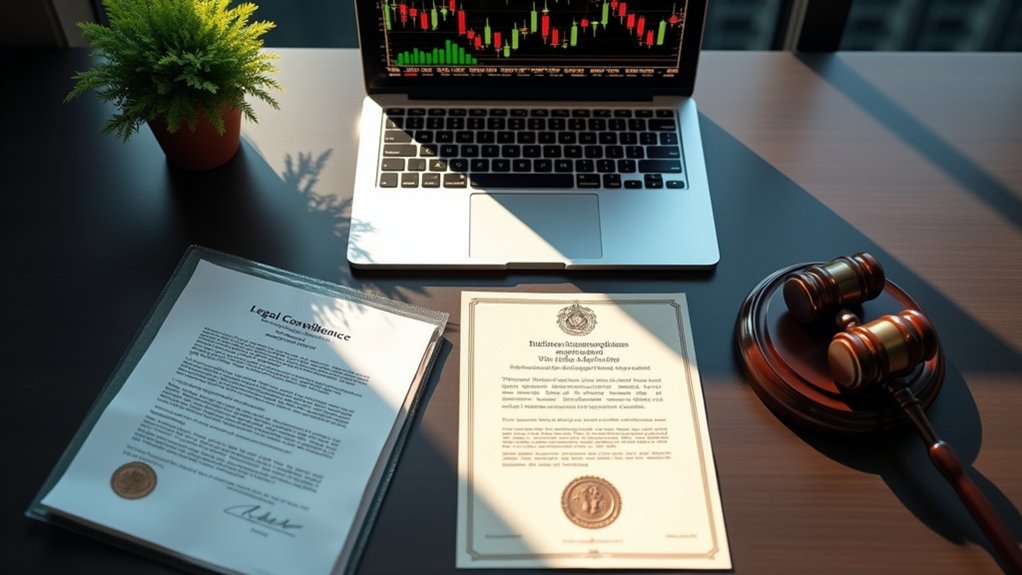
The Central Bank of Djibouti—officially the Banque Centrale de Djibouti (BCD)—sits at the top of the regulatory food chain, though “regulates” might be too strong a word. The BCD oversees banks under Law No. 119/AN/11/6th L from 2011. That's about it for retail forex.
No dedicated securities regulator exists. No formal forex broker licensing framework either.
The BCD launched a hybrid payments system in July 2022—RTGS plus cheque clearing—but that's infrastructure, not retail oversight. Rising internet penetration has fueled growth in digital financial services, yet formal oversight hasn't kept pace.
Money laundering laws exist (Law No. 196/AN/02/4th L), yet actual enforcement of retail forex rules? Thin on the ground. Many Djiboutian traders turn to offshore jurisdictions like the Seychelles FSA for broker regulation, which oversees forex trading activities through its own licensing framework.
How Forex Trading Works in Djibouti

How does retail forex trading actually function when you're sitting in Djibouti City with a laptop and some capital? Pretty straightforward, actually.
Traders pick a regulated broker—Fusion Markets leads the pack in 2025—then choose between MetaTrader 4, MT5, cTrader, or broker-specific apps.
Minimum deposits range wildly: some brokers want 8,902 DJF, others demand nothing.
The DJF sits pegged to USD at 177.721 since 1973, which keeps things stable.
No capital controls exist here.
Traders access forex pairs, commodities, indices, crypto—basically everything.
Spreads start at 0.0 pips, leverage hits 1:500.
Demo accounts let newbies practice without bleeding real money first.
Like neighboring West African markets, traders here navigate both local regulatory frameworks and practical platform access when entering the forex space.
Best Time to Trade from Djibouti

Sitting in Djibouti at GMT+3 puts traders in a sweet spot—right between Europe and America, with Asia winding down just as the workday starts.
The magic window? 3:00 PM to 6:00 PM EAT, when London's closing and New York's opening simultaneously.
That three-hour overlap delivers the tightest spreads and fattest liquidity of the day.
EUR/USD and GBP/USD pairs come alive.
Outside this window, volume drops and spreads widen.
Tokyo-London overlap hits 10:00 AM to noon for yen pairs.
Single-session periods? Maybe 30 pips.
Overlaps with news? Past 70 pips, easily.
Understanding trading session overlaps helps identify when currency markets experience heightened activity throughout the 24-hour cycle.
Calm, slow markets outside these windows waste time and effort.
Timing matters.
Payments, Deposits and Withdrawals in Djibouti
Moving money in and out of a forex account from Djibouti isn't rocket science, but it's not exactly seamless either.
Bank transfers work. Card deposits hit accounts fast. Digital wallets like PayPal and Google Pay connect, though cash still dominates locally. Visa and Mastercard are accepted.
Getting funds out? International bank transfers do the job. ATMs dispense DJF without hidden markups—airport exchanges don't. MoneyGram and Western Union quote around 177.72 DJF per dollar. Afriex links to Djiboutian banks.
Traders should prioritize secure payment methods like bank transfers and verified e-wallets when depositing funds with forex brokers to protect against unauthorized transactions.
Infrastructure lags behind, digital literacy trails further behind, but the pipes exist. Just slow, occasionally clunky pipes.
Taxes, Reporting and Money Rules in Djibouti
Getting money into an account is one thing. Figuring out what the taxman wants? That's another mess entirely.
The search for clear forex tax rules in Djibouti hits a wall pretty fast. No specific guidance on capital gains. No obvious trader registration requirements. No published thresholds for reporting forex income. The Central Bank hasn't exactly rolled out a welcome manual for retail traders. Djibouti's tax code doesn't spell it out in neon letters. So traders are left guessing, which is never a comfortable position when money's involved.
Information exists somewhere. Finding it? Good luck.
Forex Trading Scams and Risks in Djibouti
Scammers love a regulatory vacuum, and Djibouti's forex market qualifies. The Central Bank can't regulate all brokers operating here. Many international platforms aren't registered locally. Zero licensing requirements. It's a playground for fraudsters running fake brokerages with slick websites and forged licenses.
Signal sellers promise guaranteed profits, collect subscription fees, then vanish. Account takeovers happen. Multi-accounting fraud thrives.
Social media—Facebook, TikTok, Instagram, Telegram—is where recruitment happens. Fake testimonials. Phishing portals. Direct messages building trust before the ask.
Red flags? Unverifiable regulatory status. Unrealistic returns. Unresponsive customer service during withdrawals. Pressure to deposit big before you've even practiced on demo. If you find yourself unable to access your funds, knowing what to do when a broker blocks withdrawals can help you take the right steps to recover your money.
Quick Q and A
Can I Trade Forex in Djibouti With Just a Smartphone?
Yes, retail traders in Djibouti can trade forex using only smartphones through mobile apps provided by international brokers like Fusion Markets, utilizing platforms such as MT4, MT5, or proprietary broker applications with full internet connectivity.
What's the Minimum Deposit to Start Forex Trading From Djibouti?
Minimum deposits for forex trading from Djibouti vary by broker, ranging from $0 at platforms like Fusion Markets and Interactive Brokers to $200 at IC Markets, with most regulated brokers accepting $50-$100 to begin trading.
Do Djiboutian Banks Allow Transfers to International Forex Brokers?
Yes, Djiboutian banks permit international transfers to forex brokers using SWIFT/BIC codes. Transactions typically settle within 3-5 business days with approximately $20 fees per transfer. Account verification and recipient details are required before processing outbound payments.
Which Forex Broker Offers the Best Spreads for Djibouti Traders?
IC Markets and Tickmill offer the best spreads for Djibouti traders, with spreads from 0.0 pips on zero-spread accounts. Both support MetaTrader platforms with minimum deposits starting at $200 USD, providing competitive trading conditions.
Can I Use Mobile Money Services to Fund My Forex Account?
Mobile money funding for forex accounts in Djibouti remains largely unavailable. Most international brokers don't integrate with local services like D-Money. Traders typically rely on bank transfers, international e-wallets, or credit cards for deposits instead.
The Bottom Line
Forex trading in Djibouti exists in a gray zone—legal but unregulated, accessible but complicated. Traders face real obstacles: limited banking options, cross-border payment headaches, zero local oversight, and scam brokers lurking everywhere. The tax situation? Unclear at best. Anyone diving in needs to accept the reality: they're operating without a safety net in a market designed to take their money. It's possible to trade here. Just don't expect any help when things go sideways.





